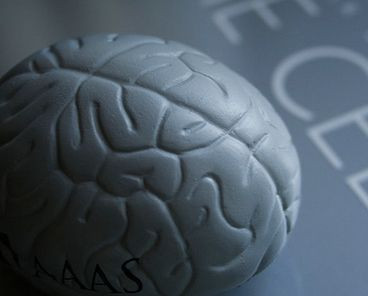Sodium Buildup in Brain Tied to Disability in Multiple Sclerosis

A new study found that sodium buildup occurred at a specific location in the brain in people who are at early stages of multiple sclerosis (MS) whereas people at advanced stages of MS have sodium buildup throughout the brain.
Researchers say that sodium buildup, detected through magnetic resonance imaging (MRI), may be considered as a biomarker for the disease.
"A major challenge with multiple sclerosis is providing patients with a prognosis of disease progression. It's very hard to predict the course of the disease," said Patrick Cozzone, PhD, director emeritus of the Center for Magnetic Resonance in Biology and Medicine, jointly funded by the National Center for Scientific Research (CNRS) and Aix-Marseille University in Marseille, France.
Researchers found a correlation between sodium buildup in the brain and the degree of disability in people who were diagnosed with advanced stages of MS.
Multiple sclerosis is an autoimmune disease that affects brain and spinal cord. The immune system of the body attacks the protective sheath covering the nerve cells. These damaged cells do not transfer signals properly causing functional disability.
Researchers studied relapsing-remitting multiple sclerosis (RRMS), the most common form of the disease, using 3 Tesla (3T) sodium MRI.
"We collaborated for two years with chemists and physicists to develop techniques to perform 3T sodium MRI on patients. To better understand this disease, we need to probe new molecules. The time has come for probing brain sodium concentrations," said Dr. Wafaa Zaaraoui, research officer at CNRS and one of the study authors.
Researchers conducted the sodium MRI on 26 patients diagnosed with MS. Of the patients, 14 of these study subjects were in the early stages of RRMS whereas 12 were in advanced stages.
"In RRMS patients, the amount of sodium accumulation in gray matter associated with the motor system was directly correlated to the degree of patient disability," Dr. Zaaraoui said.
Researchers say that this new study could lead to newer treatments for MS.
"Brain sodium MR imaging can help us to better understand the disease and to monitor the occurrence of neuronal injury in MS patients and possibly in patients with other brain disorders," Jean-Philippe Ranjeva, PhD, professor in neuroscience at Aix-Marseille University, and one of the study authors, said.
The study was published in Radiology.
Published by Medicaldaily.com



























